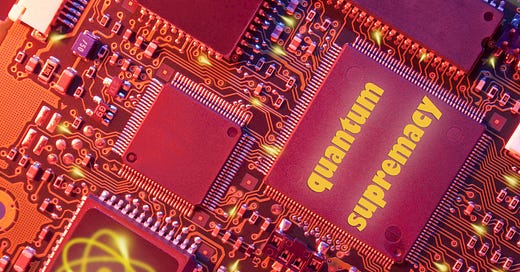Race for Quantum Supremacy – IBM Unveils 127-Qubit Processor, Twice As Powerful as Google’s
Google's response will be expected in the coming months in a sector that is expected to experience strong growth in the future.
The race for quantum supremacy continues between IBM and Google. In this race between the two computer giants, IBM has just taken the lead. In direct competition with Google, but also with Chinese academics, IBM has just unveiled the world's first processor with more than 100 quantum bits (qubits).
A qubit is a unit of measurement characteristic of the p…
Keep reading with a 7-day free trial
Subscribe to Sylvain Saurel’s Newsletter to keep reading this post and get 7 days of free access to the full post archives.




